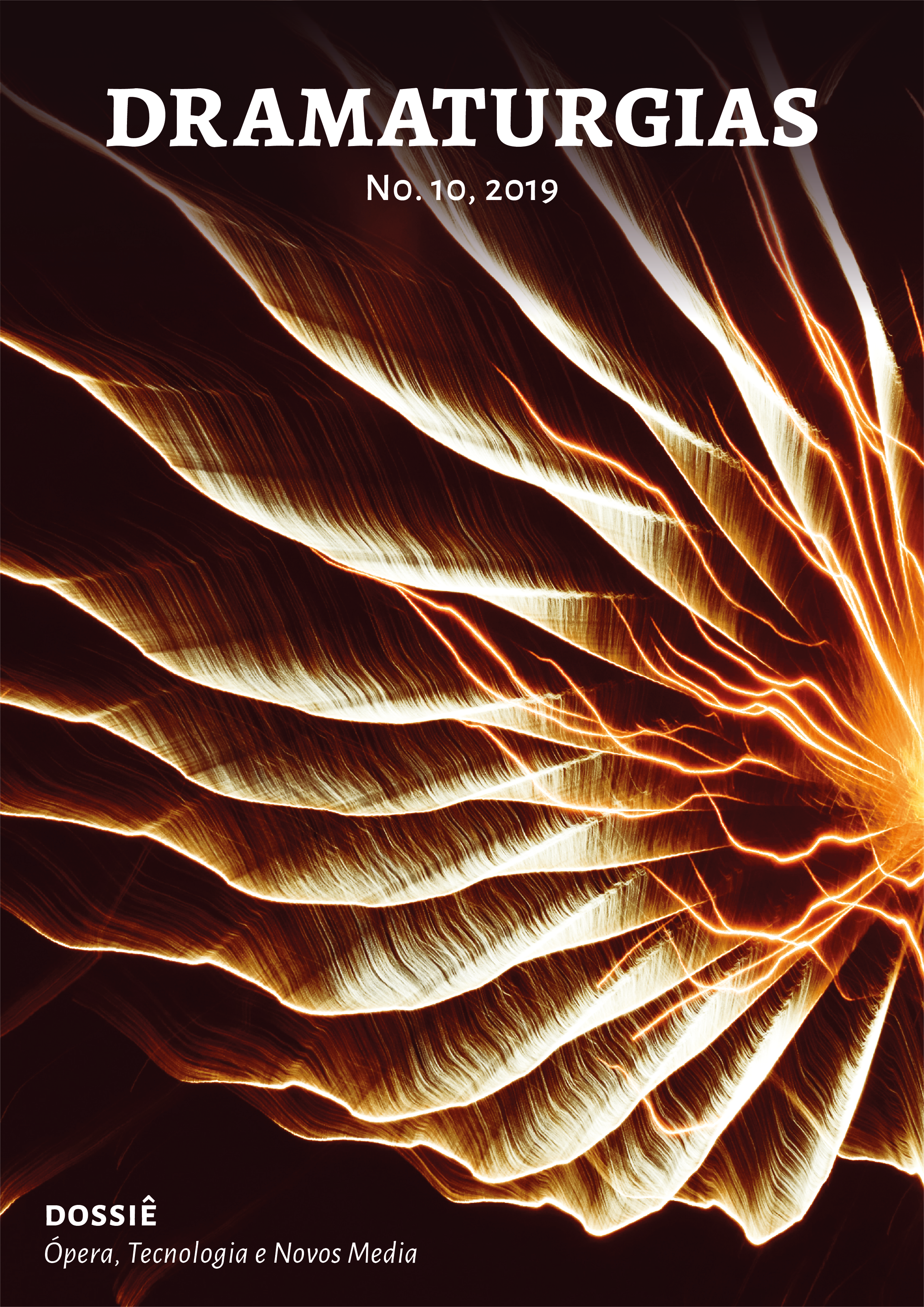The Tragic Drama of the Unfolding of Personality in Crime and Punishment
DOI:
https://doi.org/10.26512/dramaturgias.v0i10.24891Keywords:
Tragic drama. Anxiety and terror. Fccional revolution. Crime and Punishment. Dostoevsky.Abstract
The present study interprets Dostoevsky’s Crime and Punishment in connection with tragic drama. According to our thesis, Ralkonikov’s trespassing behavior does not arise from ideological positions of his time, but finds its recondite mobile in his demonic per- sonality, inflated by an unbridled will of power. The Satanism that overcomes him does not break out as an exterior determination, but emerges from a deep wish to assume control, in accord with the Greek mythologem of man and the modern philosophem of subjectivity. In consonance with the protagonist’s disposition, the novel develops as a drama, concentrated, from start to finish, on the representation of the tragic emotions of anxiety and terror, triggered by the initial plan and the final execution of the assas- sination. To render Rakolnikov’s tragic consciousness, Dostoevsky operates a radical revolution in the history of the novel. The subtle artistry of the isomorphic correlation between the theme of the disrupted personality in dispute with itself and the equivalent monodialogic form of the narrative distinguishes the Russian novelist. As we demons- trate, the fictional revolution of the novel is not confined to the monodialogue typical of theatrical drama, always pronounced by the character in the first person, but constructs itself specifically as a narrative monodialogue, rendered in the third person and characterized by the interaction between the consciousness of the narrator and the emotional experience of the protagonist.
References
BAKHTIN, Mikhail. Problemas da poética de Doistoiévski. Tradução de Paulo Bezerra. Rio: Forense-Universitária, 1981.
COHN, Dorrit. Transparent Minds. Narrative Modes for Presenting Consciousness in Fiction. Princeton: Princeton University Press, 1978.
DOSTOIÉVSKI, Fiódor. Crime e Castigo. Tradução de Paulo Bezerra. S. Paulo: Editora 34, 4 ed., 2002.
FRANK, Joseph. Dostoiévski. Os Anos Milagrosos (1865-1871). Tradução de Geraldo Gerson de Souza. S. Paulo: Edusp, 2003.HOUGH, Graham. Narration and dialogue in Jane Austen. The Critical Quartely, XII, 1970.
JAEGER, Werner. Paidéia. Tradução de A. M. Parreira. Lisboa: Aster, 1966.
LAÃN ENTRALGO, Pedro. Teoria y Realidad del Otro. Madrid: Alianza, 1983.
MOCHULSKY, Konstantin. Dostoevsky. His Life and Work. Translated by Michael Minihan. Princeton-New Jersey: Princeton University Press, 1967.
PASCAL, Roy. The Dual Voice. Free indirect Speech and its Functioning in the Nineteenth-Century European Novel. Manchester: Manchester University Press, 1977.
ROSENSHIELD, Gary. Crime and Punishment. The Techniques of the Omniscient Author. Lisse: The Peter de Ridder Press, 1978.
SOUZA, Ronaldes de Melo e. “A forma ficcional do monodiálogo”. In: ”“ Ensaios de poética e hermenêutica. Rio: Oficina Raquel, 2010, 11-30.
WASIOLEK, Edward (ed.) Crime and Punishment and the Critics. Belmont: Wadsworth Publishing Company, 1962.
Downloads
Published
Issue
Section
License
Autores mantém os direitos autorais e concedem à revista o direito de primeira publicação, com o trabalho simultaneamente licenciado sob a Licença Creative Commons Attribution que permite o compartilhamento do trabalho com reconhecimento da autoria e publicação inicial nesta revista.


